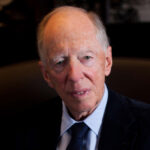The Success Story
The Morgan family’s rise to prominence began with Junius Spencer Morgan (1813-1890), a successful banker who laid the groundwork for what would become one of the most influential financial dynasties in American history. However, it was his son, John Pierpont Morgan, commonly known as J.P. Morgan (1837-1913), who truly cemented the family’s legacy.
J.P. Morgan’s success story is one of financial genius, strategic acumen, and relentless ambition. He started his career in banking under the tutelage of his father, and in 1871, he co-founded the firm Drexel, Morgan & Co., which later became J.P. Morgan & Co. Morgan played a crucial role in the development of American industry, providing the capital and organizational structure necessary for the growth of major corporations such as General Electric and U.S. Steel. His ability to consolidate industries and stabilize financial markets earned him a reputation as a pivotal figure in American capitalism.
One of Morgan’s most significant achievements was his role in the Panic of 1907. His decisive actions in organizing a coalition of bankers to provide liquidity to the failing banking system effectively saved the U.S. economy from a severe depression. This intervention showcased his influence and solidified his position as a central figure in American finance.
Conspiracy Theories
With great power and influence often come conspiracy theories, and the Morgan family is no exception. One of the most pervasive theories is the belief that J.P. Morgan was involved in orchestrating the sinking of the RMS Titanic in 1912. According to this theory, Morgan, who was supposed to be on the ill-fated voyage but canceled at the last minute, wanted to eliminate certain wealthy opponents aboard the ship who were against the creation of the Federal Reserve. While this theory lacks credible evidence, it continues to captivate the imagination of conspiracy enthusiasts.
Another theory surrounds the Federal Reserve itself. Critics have long speculated that Morgan and other powerful bankers manipulated the financial system to create economic crises, thus paving the way for the establishment of the Federal Reserve in 1913. This institution, they argue, gave these bankers unprecedented control over the U.S. economy. Although Morgan’s role in the formation of the Federal Reserve is well-documented, the idea that he orchestrated events solely for personal gain remains a matter of debate.
Modern-Day Impact and Influence
The legacy of the Morgan family extends well into the modern era. J.P. Morgan Chase & Co., one of the world’s largest and most influential financial institutions, traces its roots back to J.P. Morgan’s banking empire. The company continues to play a significant role in global finance, providing services in investment banking, asset management, and various financial products.
Beyond the financial sector, the Morgan family’s influence is evident in various philanthropic endeavors. The Morgan Library & Museum in New York City, originally J.P. Morgan’s private library, stands as a testament to the family’s commitment to cultural and educational pursuits. The institution houses a vast collection of manuscripts, rare books, and works of art, attracting scholars and visitors from around the world.
In contemporary times, the Morgan name is synonymous with financial power and prestige. The family’s legacy of innovation and leadership in banking has inspired countless individuals and institutions. However, the shadow of controversy and conspiracy theories continues to add a layer of intrigue to their story, reminding us of the complexities that often accompany great wealth and influence.
Bottom Line
The Morgan family’s story is one of triumph, controversy, and enduring impact. From the strategic brilliance of J.P. Morgan to the modern-day influence of J.P. Morgan Chase & Co., the family’s legacy is a testament to their pivotal role in shaping the American financial landscape. While conspiracy theories add an element of mystery, the undeniable contributions of the Morgans to industry, finance, and philanthropy continue to resonate in the present day.












